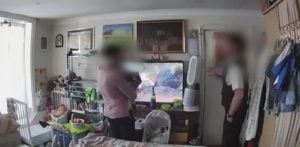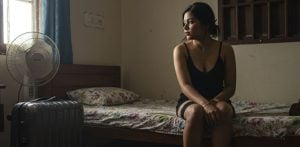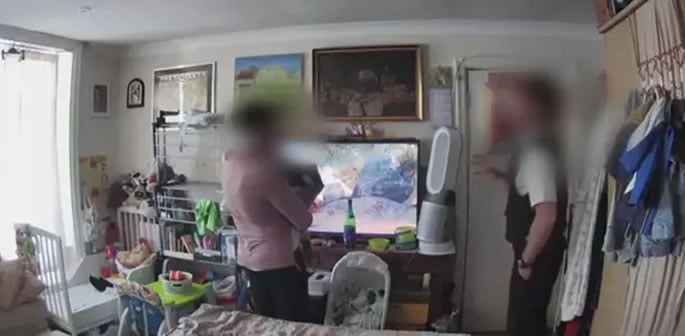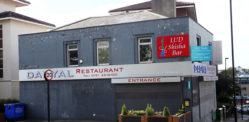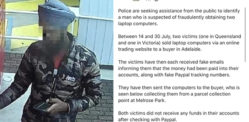"it could be any one of us."
An undercover investigation has exposed widespread illegal house-sharing across London, with many forced to live in unsafe spaces.
The black-market rental sector was uncovered when East London resident Maria contacted Your Voice, Your BBC News after years of complaints to Newham Council.
Images, videos and testimony from residents showed black mould, rats, and bare mattresses in bunk beds. Some properties have proven deadly.
UK law requires large house-shares, officially known as houses in multiple occupation (HMOs), to be licensed. Councils use these licences to ensure properties meet fire, gas and electrical safety standards.
However, the BBC investigation found that unlicensed HMOs are often more common than legal ones.
One London borough reported 3,000 licensed HMOs but estimated that two to three times that number operate illegally.
Shop windows and online adverts frequently offered “bedspaces” in shared rooms. Some listings even displayed visible mould and dirt.
A reporter responded to several adverts and in one Waltham Forest property advertising a shared bedroom for £330 a month, around 10 young men met him.
The available room was shared between three tenants, while another was shared between four. Several beds had no bedding or mattresses. One tenant admitted the property had no HMO licence, which the local authority confirmed.
A company representing the property owner said the tenancy agreement “expressly forbids” subletting or multiple occupancy. It claimed the property had never been let for that purpose and that action was taken after discovering the breach.
The man showing the property said he had “no involvement whatsoever in the management, ownership or letting of this property”. Waltham Forest Council said it would take action.
Overcrowding in unlicensed HMOs can have fatal consequences.
In 2023, Nazmush Shahadat survived a deadly fire at an HMO in Shadwell, East London. He had moved in after promised student housing fell through.
Nazmush said: “The stench hit me like an old gym with the men’s sweat.”
He described bedbug bites and mould on the ceiling above his top bunk.
On the night of the fire, 18 people were crammed into the two-bedroom flat. Many worked as food-delivery riders. The blaze started when a faulty e-bike battery ignited under a bunk bed.
Attempts to extinguish the fire failed. Tenants fled the smoke-filled flat. Nazmush said they believed everyone had escaped until firefighters carried out a man on a stretcher.
He said: “That’s when it hit us straight away, that body, it could be any one of us.”
Mizanur Rahman had only lived in the property for a few days. He died later in hospital, leaving behind a wife and two children in Bangladesh.

Landlords Aminur Rahman and Sofina Begum were fined £90,000 for multiple housing offences, including overcrowding the property beyond its three-person licence.
The true number of unlicensed HMOs is unknown, as overcrowded properties are often hidden.
Ben Yarrow, who runs the landlord review site Marks Out Of Tenancy, has developed a system to flag possible illegal HMOs.
His tool scans financial records to identify properties linked to multiple people with different surnames.
While it misses cash-only tenants and can create false positives in large family homes, the data suggests a significant problem.
In part of Newham, where only 75 HMOs are licensed, the scan flagged more than 700 possible illegal properties.
In part of Tower Hamlets, nearly 500 suspected HMOs were detected, compared with just 50 publicly listed licences.
Around Southwark’s Old Kent Road, 300 potential HMOs were identified, despite 232 official licences.
Southwark Council said it works to identify and protect tenants. Tower Hamlets Council disputed the figures but said it investigates reports.
Newham Council said it uses “advanced systems” and follows up on all resident complaints but that enforcement is difficult because tenants are “among the most vulnerable members of society”.
Between January 2023 and March 2024, Newham investigated 2,307 suspected licensing breaches.
Council enforcement teams remain stretched. Only a third of renter complaints in England between 2021 and 2023 led to an inspection.
Roz Spencer of tenant advocacy group Safer Renting said: “We are being referred more people and I believe the problem is spreading and the non-compliance issue is endemic.”
Chris Norris, chief policy officer for the National Residential Landlords Association, said most landlords follow the law and maintain their properties well.
He added:
“There is this view or perception that landlords can get away with it because, frankly, some landlords do.”
He said a “tiny minority” of landlords are responsible for these dangerous practices but admitted that local authority resources are limited.
The government says its upcoming Renters’ Rights Bill will create a national database of private rentals. London’s deputy mayor for housing, Tom Copley, said this will help councils “clamp down on unlicensed properties”.
A government spokesperson said the reforms will “empower” tenants to act without fear of eviction and insisted that “HMOs must be safe, well-maintained, and properly managed”.
Until stronger enforcement arrives, thousands of tenants remain trapped in unsafe and potentially deadly homes.







